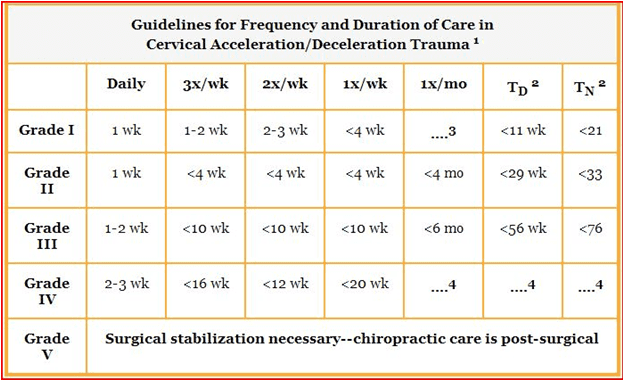The average rear-ended whiplash settlement in Florida ranges from $10,000 to over $400,000, depending on injury severity, medical bills, and insurance limits. Payouts come from PIP, the at-fault driver’s policy, or lawsuits. Lawyers typically take 30–40% on contingency.
If you’ve been in a rear-end collision in Florida and are dealing with neck pain, headaches, or other signs of whiplash, you’re probably asking the same questions many accident victims face: What is my case worth? Will my insurance cover anything? Do I need a lawyer, and what will they cost me?
In this article, we’ll walk you through:
- How Florida handles rear-end whiplash settlements
- What impacts your final compensation
- The lawyer’s cut, and what value they bring
- Where your money comes from (hint: it’s not just one source)
- What to do if you didn’t see a doctor right away
- Why even minor symptoms can qualify as a legitimate injury claim
We’ll also help you sidestep the most common mistakes that reduce payouts, and clarify confusing topics like Florida’s no-fault rule, pain and suffering damages, and insurance company tactics.
Average Settlement for Rear-End Whiplash in Florida
Rear-end accidents are the most common type of crash in Florida, and they don’t have to happen at high speed to cause damage. The average settlement for a whiplash injury caused by a rear-end collision varies dramatically, but here’s a breakdown to help frame expectations.
Settlement Ranges
Payouts typically fall between $10,000 and $400,000+, depending on the nature and severity of the injury. Settlements on the lower end usually involve soft tissue injuries with short-term treatment, while higher-end cases may include:
- Surgical needs (e.g., spinal fusion, disc repair)
- Permanent impairment or chronic pain
- Injuries involving multiple body areas like the neck, shoulders, and back
- Concussions or traumatic brain injuries
Some rear-end whiplash cases have settled for over $875,000 when commercial vehicles, extensive medical bills, or long-term disability were involved.
Mild vs. Severe Injury Case Examples
- A mild soft-tissue injury (with chiropractic care, physical therapy, and no time off work) might lead to a $10K–$25K offer.
- A moderate whiplash case involving extended therapy, limited work ability, and moderate imaging evidence could fall in the $50K–$100K range.
- A severe case with shoulder surgery (e.g., rotator cuff tear), herniated discs, or cognitive symptoms from a concussion might warrant $200K–$400K+.
Low-Speed Collisions Still Count
It’s a myth that whiplash injuries only happen in major crashes. Florida case law recognizes that even low-speed, minor-impact collisions can cause lasting damage, particularly to the neck, spine, and shoulders. Don’t let the phrase “it wasn’t that bad” stop you from pursuing fair compensation.
Hidden Injuries That Raise Case Value
Many rear-end victims overlook injuries that seem unrelated to the neck, like shoulder pain or chronic headaches. But these symptoms may signal:
- A rotator cuff tear, often mistaken for post-accident soreness
- A concussion, with delayed onset symptoms like dizziness or trouble concentrating
- A pinched nerve, causing shooting pain or numbness in the arms
These types of complications not only justify medical attention, they often boost your settlement significantly.
What Factors Affect Your Whiplash Settlement?

Photo Source -> Monash University
No two rear-end accident cases are alike. Insurance companies assess dozens of elements when reviewing injury claims. Here’s what typically matters most.
1. Medical Costs and Severity of Injury
The more you spend on medical treatment, and the more severe your diagnosis, the higher your settlement amount is likely to be. That’s why an ER visit followed by months of physical therapy or surgical intervention will carry far more weight than a single urgent care appointment.
Victims with herniated discs, nerve compression, or long-term physical therapy needs can justify higher payouts than those with transient neck stiffness. If surgery is on the table, expect numbers to climb quickly.
2. Lost Wages and Career Disruption
If your whiplash left you unable to work, or forced you into a less physically demanding (and lower-paying) job, your lost income becomes part of the equation. Settlements often account for:
- Missed days of work
- Reduced future earning potential
- Career changes due to physical limitations
This is especially significant for younger victims with many years left in the workforce.
3. Pain and Suffering Compensation
Florida law allows you to recover for pain and suffering, but the calculation isn’t cut and dry. Lawyers and insurers often use a multiplier method, where your total medical expenses are multiplied by a number (typically between 1.5 and 5) based on:
- Severity of the injury
- Recovery time
- Impact on lifestyle and emotional wellbeing
For example, a case with $30,000 in medical bills and a multiplier of 3 would yield an additional $90,000 in pain and suffering damages.
4. Insurance Coverage Limits
Your settlement is only as big as the insurance policy that’s backing it. In Florida, Personal Injury Protection (PIP) coverage maxes out at $10,000. Beyond that, you’ll rely on:
- The at-fault driver’s bodily injury policy
- Your own Uninsured/Underinsured Motorist Coverage (UM/UIM)
- Potential commercial insurance if a company vehicle was involved
Policy limits vary widely, and some drivers carry the bare minimum. That’s when things may escalate into lawsuit territory.
5. Documentation and Evidence
The best way to increase your claim’s value? Document everything. This includes:
- Medical records, imaging reports, and diagnoses
- A daily journal noting your symptoms and recovery progress
- Employer letters confirming missed work
- Therapist or specialist notes describing permanent limitations
Insurance companies are more likely to make strong offers when they see consistent, detailed evidence that backs up your injury claim.
Where Does the Settlement Money Come From?
If you’re pursuing a whiplash injury claim after a rear-end collision in Florida, your compensation could come from multiple sources. The state’s no-fault insurance system plays a key role, but it’s far from the whole picture. Let’s break it down.
Florida’s No-Fault PIP Coverage
Under Florida’s Personal Injury Protection (PIP) law, every driver must carry coverage that pays up to $10,000 for medical expenses and lost wages, regardless of who caused the crash. This is meant to provide quick support without having to prove fault.
PIP typically covers:
- 80% of medical expenses
- 60% of lost wages
- $5,000 in death benefits
That said, many victims quickly learn this amount doesn’t go far, especially when dealing with neck and back injuries, MRIs, or extended physical therapy.
What PIP Doesn’t Cover
Here’s where things get tricky. PIP does not pay for:
- Pain and suffering
- Emotional trauma
- Long-term disability
- Future medical care
- Punitive damages
These damages are only available when you step outside the no-fault system, usually by showing your injury meets Florida’s serious injury threshold. That’s where the next layer of compensation kicks in.
We explain how PIP and PDL insurance work, and why they matter, in this article: What Is PIP And PDL Insurance in Florida?
At-Fault Driver’s Liability Insurance
If your injuries are serious enough, you can pursue a claim against the at-fault driver’s insurance policy. Most drivers in Florida carry at least some bodily injury liability (BI) coverage, although it’s not legally required unless they’ve had prior incidents.
Example:
If you’ve already exhausted your PIP and your medical bills are now $40,000, you might recover the remaining amount from the at-fault driver’s BI coverage. This is also where pain and suffering and loss of enjoyment of life damages become available.
Uninsured/Underinsured Motorist Coverage (UM/UIM)
What if the driver who hit you doesn’t have insurance, or doesn’t have enough?
That’s where Uninsured/Underinsured Motorist Coverage (UM/UIM) on your own policy can protect you. UM/UIM kicks in when:
- The at-fault driver has no insurance
- The driver’s policy doesn’t fully cover your losses
- You’re in a hit-and-run accident
This coverage is optional but extremely valuable in serious rear-end injury cases, especially if you’ve suffered a severe whiplash injury, herniated disc, or required surgery.
Filing a Lawsuit: A Tool, Not a Threat
Most rear-end whiplash claims in Florida are resolved through settlements. But if negotiations stall or the insurer won’t acknowledge your injury, filing a personal injury lawsuit may be the only path forward.
While lawsuits can take longer and carry risk, they also open the door to:
- Depositions that uncover the truth about liability
- Medical expert testimony that proves long-term damage
- Higher settlement offers from insurers who fear trial
Legal action is never the first step, but with the right legal team behind you, it can be a powerful last resort when justice requires it.
What Percentage Do Lawyers Take from Whiplash Settlements?
One of the most common questions we hear is: “How much will the lawyer take out of my settlement?” The answer depends on your agreement, but here’s what most accident victims can expect.
Standard 30–40% Contingency Fee
Florida personal injury attorneys usually work on a contingency fee basis, meaning they only get paid if you do. The standard ranges are:
- 33.3% (one-third) if your case settles before a lawsuit is filed
- 40% if a lawsuit is filed or the case goes to trial
This arrangement lets you pursue compensation without upfront legal fees.
When Lawyers Might Lower Their Fee
In high-value or complex cases where medical bills consume most of the settlement, some attorneys may voluntarily reduce their fee to ensure you walk away with a fair portion. This isn’t guaranteed, but reputable firms often aim for a just result.
Why a Lawyer Often Pays for Themselves
Even after their cut, good attorneys usually increase the final settlement amount by a significant margin. Why?
- They know how to document and present injury claims
- They negotiate with insurers trained to offer less
- They know when to walk away from lowball offers
When cases involve soft-tissue injuries, pain and suffering, or long-term disability, legal guidance almost always leads to higher net payouts.
Real-World Bonus: Medical Bill Reductions
Experienced attorneys often negotiate down your medical bills. That means even if they take a 33–40% cut, your net result may be stronger than if you’d gone it alone.
At Applebaum Accident Group, our role is to connect you with lawyers who not only fight for top-dollar settlements, but also ensure that the money actually ends up in your pocket.
When to Hire a Lawyer (And When You Might Not Need One)

Photo Source -> Physio Performance
Not every rear-end case demands legal help. But many do, and knowing when to bring in a professional could mean the difference between a $5,000 check and a six-figure settlement.
Signs You Need Legal Help
- Your injuries required surgery or long-term therapy
- You’ve lost income or face permanent job restrictions
- You received a lowball settlement offer
- Liability is being contested or shared
- You’re overwhelmed by paperwork or adjusters
When You Might Not Need One
If your injuries are minor, you didn’t miss work, and you’re being offered policy limits from a well-insured driver, self-representation might make sense. Just be sure you understand what you’re signing, and what rights you’re giving up.
What to Look for in an Attorney
- Availability: Can you reach them, or only a voicemail?
- Communication: Do they explain things clearly, without pressure?
- Track record: Have they handled rear-end whiplash settlements before?
How Applebaum Accident Group Can Help
At Applebaum Accident Group, we connect victims to trusted, proven attorneys who specialize in car accident settlements, especially whiplash, back injuries, and neck trauma. Our network includes legal and medical professionals who understand the system, and more importantly, how to fight for you within it.
Know Your Value, And Protect It
Rear-end crashes might seem “minor,” but their impact can last far longer than most people realize. Whiplash injuries, spinal strain, and concussions don’t just fade overnight, and if you accept a low settlement or miss key deadlines, you may lose your chance to be fully compensated.
Applebaum Accident Group exists because we’ve seen too many people suffer in silence or settle for less. With deep roots in the legal and medical communities, we’re here to connect you with professionals who take your pain, and your rights, seriously.
You’ve been hit. That wasn’t your choice. What happens next? That’s in your hands.
Take the First Step Toward Justice
If you’ve been injured in a car accident, don’t wait to seek legal help. Call Applebaum Accident Group today, and we’ll connect you with the right attorney to fight for your rights.
📞 855-225-5728 | Request Your Free Consultation Now
With Applebaum Accident Group, you get support, expertise, and access to Florida’s best attorneys – without the stress. Let us help you find the legal representation you deserve.





